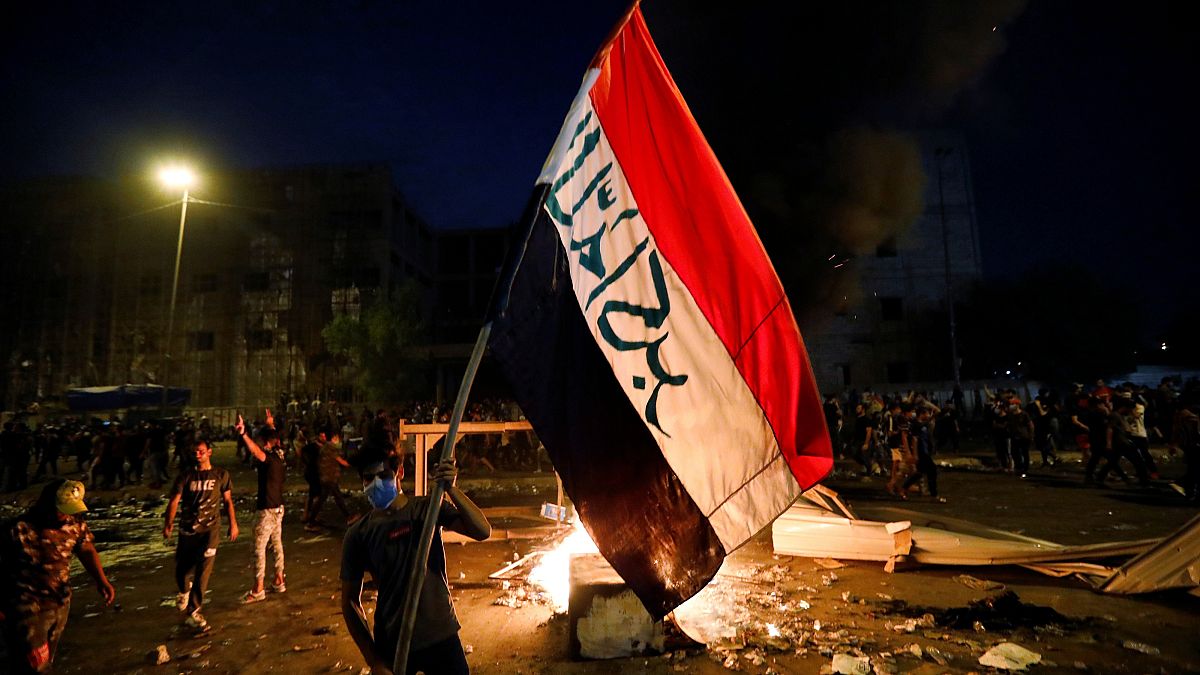"People elected a new government, a new leadership, and yet it seems that the system of Iraq's government, the new system post-2003, post-Saddam Hussein, is failing," expert Bilal Wahab told Euronews.
At least 27 Iraqis have died in recent days in clashes between protesters and the security forces during street demonstrations that caught the authorities by surprise.
Why are Iraqi protesters taking to the streets at their peril?
Euronews' Alex Morgan spoke to expert Bilal Wahab of The Washington Institute for Near East Policy to find out.
With the defeat of the so-called Islamic State group in the Middle Eastern country, jobs and corruption became again the main concern of many Iraqis, Wahab told Euronews.
"The new Iraqi government has had a year to tackle unemployment and corruption. Obviously the people have spoken with their feet by taking the largest squares, not only in Baghdad but in many other cities and towns in southern Iraq," Wahab said.
"They are not happy with the level of progress made in creating jobs for them and with the level of corruption."
"These protests are sporadic, spontaneous, they are leaderless. They are a continuation of the protests that took place last July 2018 in Basora, the oil heartland of this country."
'Post-Saddam Hussein system failing'
"People elected a new government, a new leadership, and yet it seems that the system of Iraq's government, the new system post-2003, post-Saddam Hussein, is failing," Wahab continued.
"It's been a system of sectarian divide of power and authority and doling out patronage and revenues."
"While that has worked for a while, because it provided public sector jobs for followers and cronies and supporters, mainly on identity and political basis. But there only so many jobs and so many seats in these government offices."
"The government has so far failed to open up the private sector where the majority of jobs will be created," the expert said.
"But on the other hand, the public is also angry about the mismatch between their living standards and the living standards of the elite."
"There is an Iraqi joke that says: every billionaire starts from zero. Iraqi billionaires start in 2003. "
